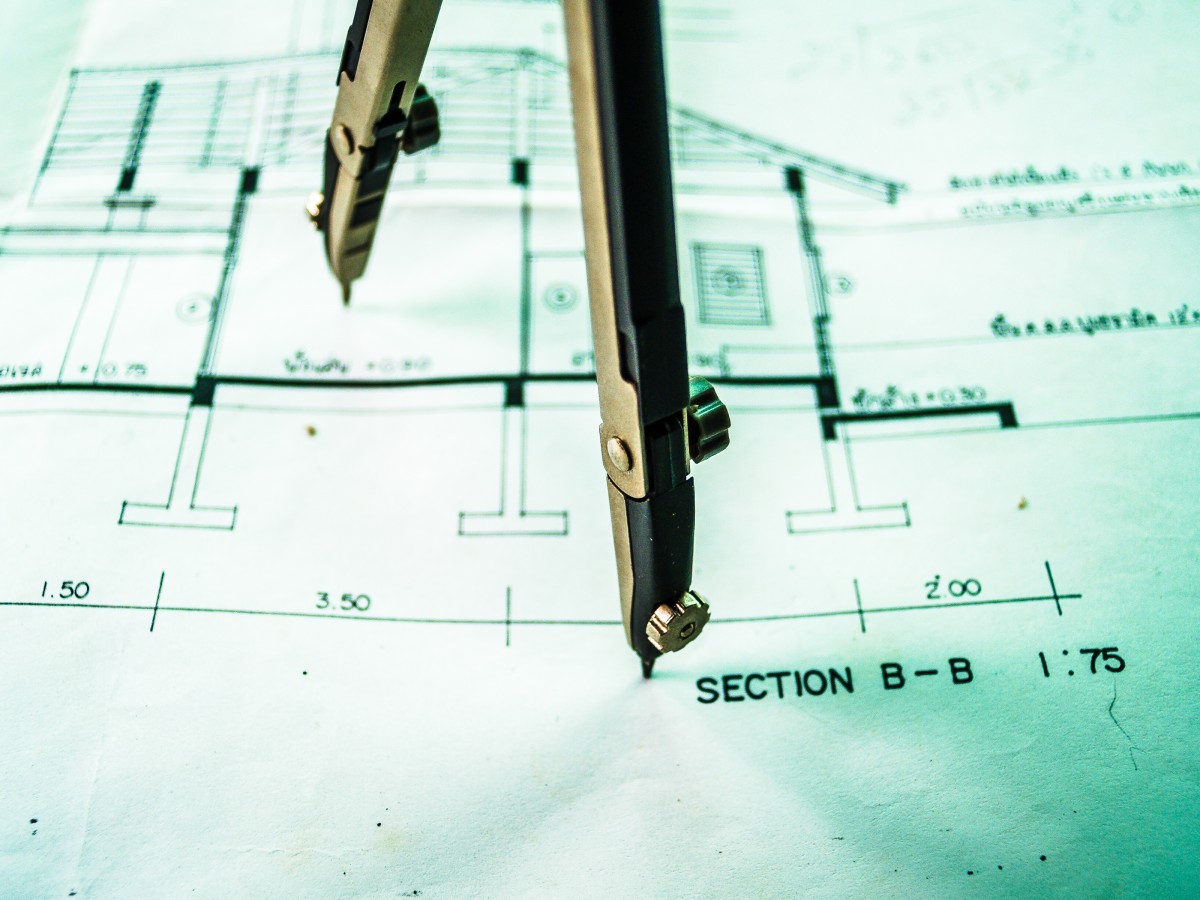- Defined Skills
- Personality Traits
- Adventurousness
- Artistic Ability
- Attentiveness
- Cultural Sensitivity
- Compassion Skills
- Teaching Skills
- Spatial-Orientation Skills
- Self-Discipline Skills
- Resourcefulness Skills
- Reliability Skills
- Perseverance Skills
- Perceptiveness Skills
- Patience Skills
- Curiosity Skills
- Dedication Skills
- Dependability Skills
- Determination Skills
- Discipline Skills
- Empathy Skills
- Flexibility Skills
- Observation Skills
- What Are Character Traits?
- Productivity Skills
- Common Skills
Find a Job You Really Want In
From the simplest street sign to the most complex time, we read every single day. It is such a natural and expected part of everyday life, we often do it without thought. We recognize the letters, we understand the words, and we comprehend what those words are saying. Simple and easy, right?
We want to be understood when we speak and for people to understand what we write. Comprehension is the goal of communication.
It may not be something you remember being taught outright, and it is unlikely that you were. Reading comprehension is a skill learned throughout your schooling. It is integrated into each subject, each lesson, each day.
We learn comprehension through the mastery of other skills. The compilation and mastery of skills like language, sequencing, comparing, and contrasting ideas, allows for you to comprehend what is being communicated.
You may not remember learning it, but you are practicing it every time you read text. You are practicing your reading comprehension skills right now.
What Is Reading Comprehension?
Reading comprehension is the ability to process what is being read, understand the meaning the author is trying to convey — both textually and subtextually — and make inferences based on prior knowledge.
This fundamental skill is influenced by outside factors. The reader’s cognitive skills, such as visual processing, processing speed, and logic and reasoning skills, can all have an impact on their ability to comprehend text.
Prior knowledge, language fluency, and the ability to make inferences will also play a role in a reader’s comprehension.
Reading comprehension involves both text comprehension and vocabulary knowledge. You need to know what each word means individually and as part of the whole in addition to what the text is trying to convey.
Why Are Reading Comprehension Skills Important?
Reading comprehension demonstrates your ability to understand, interpret, analyze, and infer written information. Your reading comprehension level is indicative of many other important, and sought-after, skills in the workplace.
Your overall communication skills, your critical thinking skills, your attention to detail, your decision-making ability, even your ability to concentrate can all be assumed from your ability to understand what you read.
Many jobs will even administer a test that determines comprehension abilities to determine if a candidate will be a good fit for the role and the company.
You will need to read and interpret text at a near-constant rate. From a simple email to a complex manual, you need to be able to understand what is being communicated and respond accordingly.
Comprehension plays a role in your ability to communicate with and understand your coworkers, supervisors, managers, and your clients. It can help you make decisions and formulate a plan. Your ability to interpret the written word empowers you.
If you want to advance your career, your reading comprehension skills must be above average. A more advanced position will inevitably come with additional communication responsibilities.
Your ability to understand what your employees and your superiors are writing can be the difference between getting that promotion and being passed over.
How to Improve Your Reading Comprehension Skills
Reading comprehension is a skill. And, like any skill, it can be improved with practice. It should be noted, though, that this is an extremely difficult skill to build. You will need time and patience to improve your comprehension abilities to any degree.
-
Improve your vocabulary. Your understanding of the words being used will have a direct effect on your ability to comprehend the text. Fluency in the language you are reading is important, but may not always be possible.
Do your best to build your vocabulary regularly to improve your comprehension.
Every industry has its language. Some companies may even have their own commonly used lingo. Be sure to familiarize yourself with the common language used in your industry or company.
Without knowledge of the common terms and phrases, you will not be able to fully comprehend what you’re reading.
-
Skim first. This is more useful for longer or more complex texts. Although, you may skim your emails and memos to gather important information quickly. Be sure to skim through the text first to glean any important information before reading through more thoroughly.
By skimming first, you allow yourself to gather the main points before diving in deeper. This can help you to focus on the information you need more clearly.
-
Ask questions. Before you begin reading, while you are reading, and after you are finished, you should be asking questions about the text. This can help you to determine the main points and find the deeper meaning.
Asking questions can help you become more invested in the text as you search for answers. The more specific the questions you ask, the more insight you’ll gain.
-
Use context clues. If you’re unable to understand exactly what a word, sentence or phrase means, use clues from the surrounding text to help you gain clarity. Using context clues can help you to build your vocabulary, which we already know is an important part of reading comprehension.
-
Summarize. You can practice this throughout the text, or once you’ve finished reading. By restating the main ideas in your own words, you will see the text in a language that makes the most sense to you.
Not only will this help you to better understand the information being conveyed, but you will also be better able to relay this information. You want to make sure that you are clear in your meaning when you explain the text to coworkers or clients.
-
Make inferences. You need to read between the lines. Reading comprehension is about understanding what is being said both textually and subtextually. Try to see the subtext and understand what is being implied.
By drawing inferences, you can make connections and conclusions based on what you’ve read.
-
Visualize. If you’re working with a complex concept or struggling to understand it, visualization can be the difference. Create a mental image or draw a graphic organizer to help extract meaning from the text.
Visualization is an immensely helpful skill that can have a significant impact on your ability to recall information. Visualization is strongly linked to short-term and long-term memory.
Tips to Make the Most of Your Reading Comprehension Practice
It is not easy to improve your reading comprehension skills. Time and practice are the only way to build this skill, meaning it’s important to practice regularly. In other words: read, read, read, and read some more.
You can do both guided reading practice and relaxed reading practice. Both will help you build your comprehension skills.
There are ways to help you make the most of your reading comprehension practice. If you’re trying to improve your comprehension skills:
-
Read aloud. When you hear the text instead of just seeing the words on the page, it can help you to decipher meaning.
It can help you to better concentrate on the text, sharpening your focus and allowing you to dedicate your attention to what is being said. Studies have found that reading aloud can also help you to commit the text to memory and recall it later.
-
Reread to build fluency. If a text is complex or you’re having trouble understanding it, reading through it at least twice can help immensely.
The first read-through allows you to focus on the vocabulary knowledge involved in incomprehension. Subsequent read-throughs will allow you to focus on text comprehension.
To truly benefit from this strategy, you should follow the steps outlined above in the first, and perhaps second, time reading the text to ensure that you’re absorbing all the necessary information.
-
Do both guided reading and relaxed reading. Typically, guided reading refers to reading with an instructor in a small group setting. Here, guided reading simply means reading passages or chapters and checking that knowledge.
There are plenty of reading comprehension worksheets and passages available. If you find these to be too simple, you can find free versions of standardized exams available online.
There are also inexpensive books dedicated to the reading comprehension sections of many exams. These will provide you with exactly what you need: complex passages that are followed by questions to check your comprehension.
Don’t focus solely on guided reading, though. You should also practice relaxed reading. This is reading books, magazines, graphic novels, anything you enjoy reading in a relaxed setting.
With relaxed reading, you don’t want to focus on getting everything you can out of the text. You simply want to practice your skills through reading.
-
Keep notes. Keep a notebook or set of Post-it notes with you while you’re reading. Make notes of main points, important facts, or anything you feel you need to remember. If there is a challenging passage that you’re able to decipher, make a note of it.
-
Mark anything you don’t understand. If you come across a word or phrase that you don’t understand, make a note. You can mark it in the notes you’re keeping thanks to the previous point, or highlight/underline it in the text.
Don’t just make a note, though. Look up the meaning and mark that in your notes as well. This will help you to recall the information better when you read through it again.
-
Avoid distractions. If you can’t concentrate on what you’re reading, your comprehension will suffer. If you’ve ever been in a distracting environment and found yourself rereading the same sentence over and over without the information ever sinking in, you know what I mean.
If you’re reading a complex text or one that is overflowing with important information, remove the distractions. If it’s loud, consider using headphones to block out the noise. If you’re in a visually distracting environment, relocate.
-
Summarize. This point was made in the previous section, but it felt necessary to mention it again. Summarizing what you have read is one of the easiest ways to build your reading comprehension skills.
This means more than summarizing everything you’ve read. If you come across a particularly dense or confusing passage, summarize. If there is a sentence you’re not quite decoding, try to summarize. And, one more time with feeling: summarize.
-
Read a variety of texts and subjects. Not all texts are created equal. And, even if they were, it would get boring to read the same type of content over and over. Add some variation to your practice.
Keep it simple or find something more complex. Expose yourself to a variety of subjects.
The variation will help you build out your vocabulary even further and add to your knowledge bank. Inferring will become easier and comprehension will come faster. -
Underline main points. This is pretty straightforward. Underlining the main points and important pieces of information as you read will allow you to go back to them.
This is information you want to commit to memory and recall later. If you can skim through and easily locate it, it will simplify the process for you.
- Defined Skills
- Personality Traits
- Adventurousness
- Artistic Ability
- Attentiveness
- Cultural Sensitivity
- Compassion Skills
- Teaching Skills
- Spatial-Orientation Skills
- Self-Discipline Skills
- Resourcefulness Skills
- Reliability Skills
- Perseverance Skills
- Perceptiveness Skills
- Patience Skills
- Curiosity Skills
- Dedication Skills
- Dependability Skills
- Determination Skills
- Discipline Skills
- Empathy Skills
- Flexibility Skills
- Observation Skills
- What Are Character Traits?
- Productivity Skills
- Common Skills





